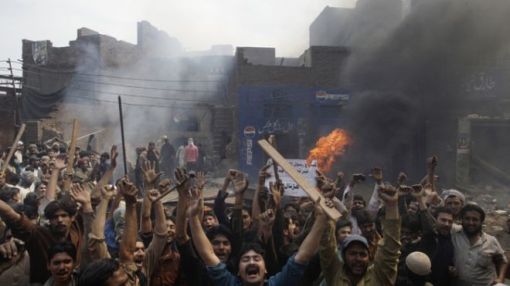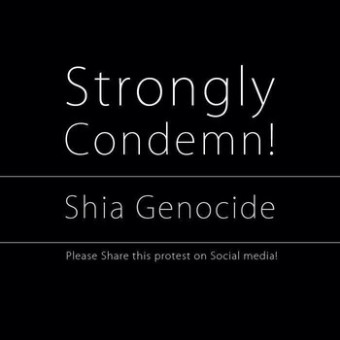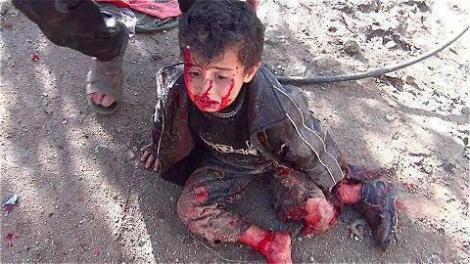By Yamiche Alcindor, Marisol Bello and Larry Copeland to USA Today

Spurred by social media and community rallies, the shooting death of a 17-year-old Florida youth has become the latest flashpoint over how young black men are perceived in the United States.
Trayvon Martin’s death Feb. 26 at the hands of a Neighborhood Watch leader in this small, gated Florida community has rippled through many corners of the nation’s justice and political system and raised questions about the relationship between the black community and police in small towns.
In the past 48 hours, the case has:
•Sparked an investigation by the U.S. Department of Justice, the FBI and the Florida state attorney’s office.
Brought calls for changes in a Florida self-defense law that says a person being attacked has no duty to retreat and may return force;
Trayvon Martin was talking on his cell phone when he was shot and killed in February.
•Ignited protests, including a “Million Hoodie March” in New York City planned today, and a rally Thursday in Sanford led by civil rights activist Al Sharpton;
•Amassed more than 600,000 signatures in an online petition calling for charges to be filed against George Zimmerman, the Neighborhood Watch captain who said he shot Martin.
Zimmerman has not been arrested or charged with a crime.
The case has resonated for many who say Martin died because of stereotypes of young black men as violent criminals. The shooting is already being compared with high-profile and historic civil rights cases — for instance, a doctored photograph has circulated throughout many social media sites that compares Martin to Emmett Till, a young man lynched by white men in 1950s Mississippi.
“It’s not about these individual acts of racism,” said Mark Neal, a professor of African and African American Studies at Duke University. “It’s about the way that black males are framed in the larger culture … as being violent, criminal and threats to safety and property.”
The tragic case played out in Sanford, population 54,000, about 30 minutes north of Orlando, when Martin left his father’s home to buy candy and iced tea for his little brother at a nearby 7-Eleven.
He was on his way back in the rain when Zimmerman, 28, spotted him. Zimmerman was armed as he patroled the area in his car in response to several break-ins in the community.
Zimmerman called 911 to report a suspicious person, according to the call released by Sanford emergency dispatch. Against the advice of the 911 dispatcher, Zimmerman followed Martin, according to the 911 recording.
The two men fought and Trayvon Martin was left dead. Zimmerman told the Sanford police that he shot the teen in self-defense because he was fearful for his life. The police have said there is no evidence to contradict Zimmerman’s claims. Police say Zimmerman was bleeding from his nose and the back of his head.
Zimmerman has not spoken publicly. In a statement, his father, Robert, said, “The portrayal of George Zimmerman in the media, as well as the series of events that led to the tragic shooting are false and extremely misleading. … George is a Spanish-speaking minority with many black family members and friends. He would be the last to discriminate for any reason whatsoever.”
The fatal shooting touched a chord of community outrage in Sanford on Tuesday night. The killing was “a senseless murder as far as we are concerned,” Seminole County NAACP President Clayton Turner told a capacity crowd at the start of a town-hall-style meeting at Allen Chapel AME Church.
Clayton said the Sanford city manager and mayor were unable to attend because they had been “summoned” to Washington by Attorney General Eric Holder.
“The line has been drawn in the sand,” Clayton said. “We as people of color are going to stand our ground. We are going to do it in a non-violent way, and we are going to prevail.”
Before his son’s death, Tracy Martin warned son Trayvon that being a black man in America could be dangerous.
“I’ve always let him know we as African Americans get stereotyped,” Tracy Martin told USA TODAY. “I told him that society is cruel.”
Those warning messages have echoed in Tracy Martin’s head since his son died.
Martin family attorney Benjamin Crump said Tuesday that the young man was on the phone with his girlfriend when Zimmerman followed and approached him. He said the 16-year-old girl told a harrowing story that he says shows Martin did not attack Zimmerman.
The girl, whose family asked the attorney not to reveal her identity, told Crump that she and Martin were talking on the phone when he left the store, a bag of Skittles in his pocket. Crump said as Martin walked home, he told the girl, “This dude is following me.”
Crump said the girl told him that she told Martin to run. Martin ran, which coincided with Zimmerman’s comments to 911 in which he said the suspicious man was running, Crump said.
“Then she hears (Martin) say, ‘Why are you following me?’ and another voice say, ‘What are you doing in the neighborhood?’ ” Crump said.
Police actions questioned
The girl told Crump she then thought she could hear Trayvon was pushed and she heard a brief altercation, then the line went dead.
“This claim that Trayvon Martin was the aggressor is preposterous,” the attorney said.
Crump has questioned Sanford police actions after the shooting, noting that police did not run a blood-alcohol test or a background check on Zimmerman, but they ran both on Martin after he died. He said police took Zimmerman’s word without conducting a thorough investigation.
Tracy Martin says he wants Zimmerman arrested and tried in court.
“My child was profiled,” the father said. “He was stereotyped. We aren’t letting our son die in vain.”
The decision not to arrest Zimmerman was made by the responding officer who released the gunman after he claimed to have acted in self-defense, Sanford officials said Tuesday.
It was only after a growing public outcry expressing a lack of confidence in the police department’s actions that city leaders called on the Justice Department to review the shooting, City Manager Norton Bonaparte and Mayor Jeff Triplett said.
“We have a lot of strife in our community right now,” Triplett said at a Capitol Hill briefing where he and Bonaparte appeared with Rep. Corrine Brown, a Florida Democrat. “If we’ve made an error, I want someone to tell me. There will be no stone that won’t be overturned.”
Triplett said the Justice investigation would review all aspects of the case, including the police response and the decision not to arrest Zimmerman.
Bonaparte acknowledged Zimmerman was part of a network of local Neighborhood Watch groups trained by the Sanford Police Department and urged “not to engage” possible suspects or people they encounter. Brown said she was “not satisfied” with the initial handling of the case, agreeing that Zimmerman was not tested for possible substance abuse immediately after the incident and lamenting that proper steps were not taken to preserve possible evidence at the scene.
“People need to feel that the system is fair,” Brown said. “It just wasn’t handled right.”
In conversations with the Sanford police chief, Triplett said he believes the Florida law known as the “stand your ground” statute, which provides a broader interpretation of self-defense, played a role in the decision not to arrest and charge Zimmerman.
The law allows the use of force if the person “reasonably believes” it is necessary to protect the person’s own life, or the life of another or to prevent a forcible felony.
In the wake of Martin’s death, the law is getting a second look. State Sen. Oscar Braynon, who represents Miami Gardens where the teen lived with his mother, called for hearings or a select committee to clarify what constitutes self-defense under the law. He said that since the law was enacted in 2005, the number of justified homicides in the state has skyrocketed. In 2005, there were 43 such cases; in 2009, the last complete year available, there were 105, Braynon said.
“I think there is vigilante justice happening and I think people are getting shot,” he said. “This is an unintended consequence of the law.”
Social media’s role
Public activism has played a pivotal role in bringing national attention to the case and ultimately leading to a top-to-bottom review of what happened that day. A wellspring of social media grew by the day and became relentless, demanding that the spotlight return to Sanford. It’s the only way to galvanize people in such cases, says Neal, the Duke professor.
“If folks aren’t on Twitter tweeting stories and giving particular testimonies; if you don’t have artists doing videos on YouTube talking about what Trayvon might have experienced … I don’t think we get a moment where suddenly the Justice Department is saying we need to investigate this case,” Neal says.
Change.org spokeswoman Brianna Cayo Cotter said the petition calling for prosecution of Zimmerman was drawing the second-highest amount of traffic to the site since a petition was launched for Kyleigh’s Law, a measure passed in New Jersey in 2010 that requires drivers younger than 18 with permits or probationary licenses to display special decals on their vehicles. Kyleigh D’Alessio was 16 when she died in a 2006 car crash.
“We are seeing unprecedented traffic on our website,” Cayo Cotter said.
The attention is also focusing on the town of Sanford, which has a history of racial tensions.
“This case more than anything reminds me of Jena — of a small Southern town that played by its own rules,” Sharpton said. “Sanford authorities thought they could contain it. … Once it becomes national, they can’t contain and control the story and the outcome.”
The Jena 6 were black teens initially charged in 2006 with attempted murder for beating a white schoolmate in the town of Jena, La. After a national outcry, community rallies and online petitions, the charges were reduced.
Theo Shaw, 23, one of the Jena 6 who is preparing to attend law school in the fall, says, “This is another incident in which there is a presumption that a young black man has been guilty of something.”
Contributing: Melanie Eversley in New York; Kevin Johnson in Washington; Carolyn Pesce in McLean, Va.; Associated Press



















You must be logged in to post a comment.